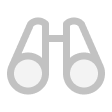Erlotinib
Uses
Erlotinib is used in the treatment of non-small cell lung cancer and pancreatic cancer.
How it Works
How Erlotinib works Erlotinib is an anti-cancer medication. Epidermal growth factor receptors (EGFR) are present on the surfaces of lung cancer cells and play a role in regulating their growth. This medication works by binding to the chemical messenger EGFR, thereby inhibiting the cancer signaling pathways mediated by EGFR. This mechanism restricts the further growth of cancer cells.
Side Effects
Common side effects of Erlotinib include acne, conjunctivitis, dry skin, gastrointestinal bleeding, hair follicle inflammation, hair loss, nosebleeds, skin fissures, corneal inflammation, paronychia, and renal insufficiency.
Expert Advice
- Erlotinib is used to treat non-small cell lung cancer that is locally advanced or has metastasized to other areas of the body.
- It should be taken 1 hour before or 2 hours after a meal.
- Diarrhea may occur as a side effect; drink plenty of fluids and inform your doctor if it persists or if you notice blood in your stools.
- Use a reliable contraceptive method to prevent pregnancy while taking this medicine and for one month after discontinuation.
- Erlotinib increases skin sensitivity to sunlight; apply sunscreen or wear protective clothing when outdoors.
- Avoid smoking while on this medication, as it can reduce the drug's effectiveness and may require dose adjustments.
- Do not take with medications that lower stomach acid (such as antacids or H2 blockers including ranitidine), as this may affect the efficacy of the drug.
- Inform your doctor if you experience mouth ulceration, changes in vision, or worsening cough, shortness of breath, or breathing difficulties while taking this medication.
- Your doctor may recommend regular blood tests to monitor liver function during treatment.
- Do not take this medicine if you are pregnant, planning to conceive, or breastfeeding.
Related Medications
₹800
MRP ₹6,145.2
₹7,900
MRP ₹6,145.2
₹2,566
MRP ₹6,145.2
₹18,500
MRP ₹6,145.2
₹6,800.2
MRP ₹6,145.2
₹8,100
MRP ₹6,145.2
₹4,348.6
MRP ₹6,145.2
₹6,490
MRP ₹6,145.2
₹2,340
MRP ₹7,126.6
₹6,660
MRP ₹7,126.6
₹7,200
MRP ₹7,126.6
₹8,870.4
MRP ₹7,126.6
₹2,000
MRP ₹7,126.6
₹2,996
MRP ₹7,126.6
₹11,159.8
MRP ₹7,126.6
₹12,000
MRP ₹7,126.6
₹9,900
MRP ₹7,126.6
₹2,848.9
MRP ₹7,126.6
₹7,200
MRP ₹7,126.6
₹3,660
MRP ₹7,126.6
₹24,549
MRP ₹7,126.6
₹40,300
MRP ₹7,126.6
₹8,316
MRP ₹7,126.6
₹25,000
MRP ₹7,126.6
₹25,500

Flat ₹100 off on first app order | Use Code: APP100 |
Flat ₹100 off on first app order
USE CODE: APP100

Download Now